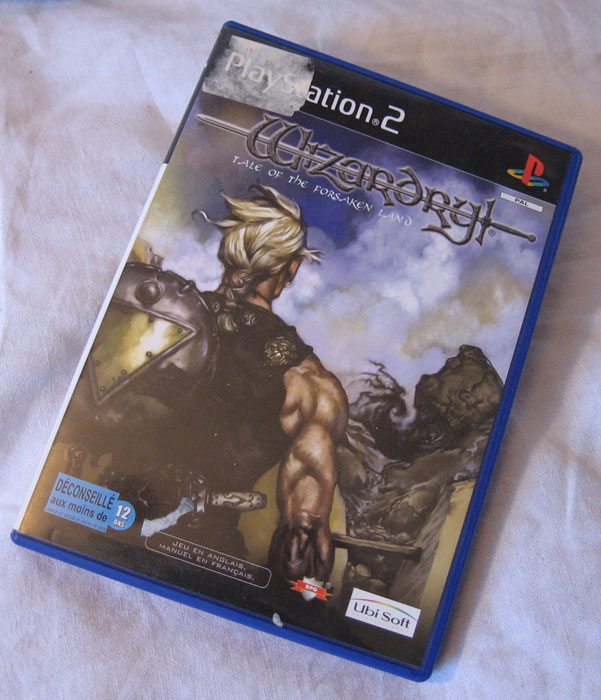
There’s a thing to be said for blue disc PS2 titles…and that thing is they don’t last. I only have 2 and for some reason, both of them have the same problem: you put them in and it doesn’t matter how clean they are, they GRIND and POP within the console. Maybe my PS2’s getting old, maybe there are microscopic scratches I’m not seeing, or maybe, just maybe, I need new copies. I don’t know.
But this was especially depressing when I went back to play Wizardry: Tale of the Forsaken Land, a 2001 first person dungeon crawling RPG exclusive for the PS2. So why highlight this one? At first glance, it’s nothing special. If anything, its desperate ties to more traditional roots could, initially, turn off some gamers. But there are a few elements at play that keep me coming back, namely…
The Challenge
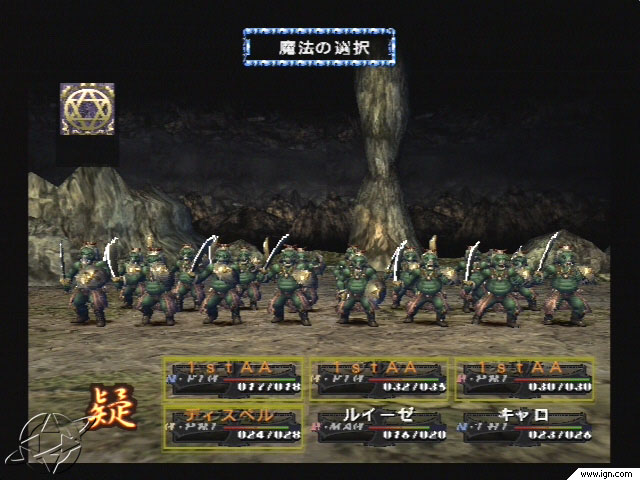
This is a pretty typical battle, actually. Yes, you read that right.
Think back, way back to the exciting world of the mid 90s. Games didn’t autosave or remind you to save or allow you to save anywhere (at least not most of them). No, you relied on savepoints. They were your life blood. Part of the fun and challenge of older titles was seeing how much further you could go before hightailing it back to the last savepoint hoping you could make it before inevitable death.
In this game there is ONE savepoint and it’s in town. At first, that doesn’t sound very fun, but trust me when I say it totally is. You’ll be returning to town a lot anyway because you can only level up by resting at the inn. And while you do find treasure, you won’t find enough to supplement yourself as though it were a roguelike. Seriously limited inventory space, too.
The game thrives on making each floor significantly more difficult than the last, meaning when you’re able to progress to the next area, it’s a major accomplishment. There are a few shortcuts you can unlock here and there, but not many. Therefore, another challenge is the trek all the way there and all the way back, meaning you have to plan, prepare, and remember accordingly.
For an oldschool RPGer like me, this is a perfect setup. Sure, sometimes these kinds of games can get annoying to the point of just plain frustrating (as in the case of Dark Spire for the DS), but the game isn’t deliberately cruel or overbearing; it is what it is. It kind of reminds me of the original Final Fantasy, trekking through perilous dungeons such as the Marsh Cave. But part of what can go horribly wrong (or brilliantly right) in RPGs is repetition, which leads me to…
The Grind
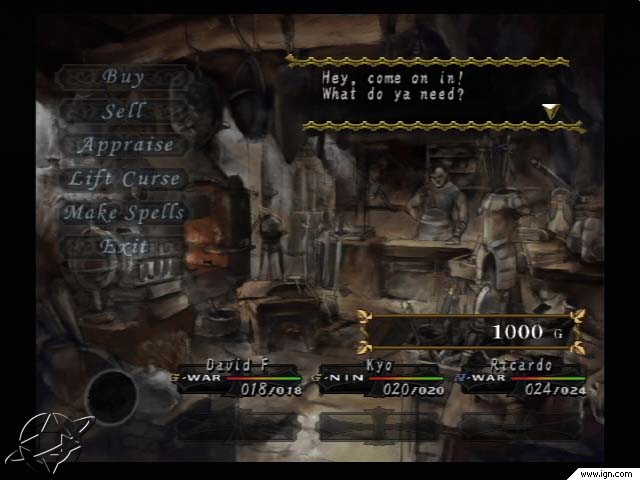
“1000G? Oh, you want the ‘economy’ dungeoneering set.”
For most RPGs, grinding is a must. Sometimes it’s put in as an artificial barrier such as in the case of Vay or Lunar Dragon Song where the enemies are tough, but the bosses are ridiculous to the point you will want to murder something because of how much you have to level up, even though you’re clearly fucking done with the area. But even in those cases what really matters is how fun it is, or isn’t, to grind.
With Wizardry, it’s very straightforward. It takes a while to level up, which again, is probably a good thing because you have to leave the dungeon and rest at the inn to actually commit the level up. At times, you may be buying, crafting, healing, changing classes, rearranging the party, invoking new allied actions, and accepting a bunch of new quests when you enter town as well, so even if you’re just going to save and call it a night, that might take a bit.
The best part about Wizardry is it’s kept simple, easy, quick, and fun. Well, by easy I don’t mean the difficulty is easy, but rather it’s easy to pick up and play, if that makes sense. There are virtually no loading times (or at least there weren’t until my PS2 decided to troll blue discs) and the game’s lackluster often works in the its favor because it means there’s no slowdown and everything is kept at a nice, brisk pace.
You’ll notice I haven’t exactly talked about the story, plot twists, etc. That’s because they barely exist. Even with this setup, it doesn’t matter, because the game is quick and fun. But despite everything I’ve said, there is one feature especially that keeps me coming back to this game. One feature that I believe makes this more than just a fun, mediocre, and obscure title…and that is…
The Trust Feature
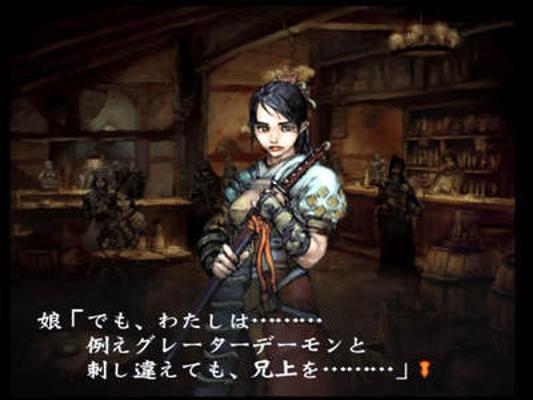
You know it’s an RPG because of the dots.
A lot of games, especially lately, like to have intimacy between characters that allows for more combat actions, personal dialogues, combined techs, and so on. But really, what do you do to attain these? Mostly conversation. Now don’t get me wrong…this works in one and only one way: you develop a personal relationship with your other party members. You “get” them and as a result, they become more important and special to you.
As a result, it can be said that that makes sense why you’re more willing to try new things with them, back them up in combat, trust them to have your back, etc. And this is fine and good, but it’s oversimplified to a level of absolute nausea in some cases. There’s a feature within this incarnation of Wizardry called Trust that I absolutely love.
I don’t recall if dialogue and choice really have much part in the game at all, but even if they do, it doesn’t matter. Where Trust is typically affected is through combat. One of the first characters you get is a warrior with a strong sense of justice. His personality type is more of a character that just wants to ensure everyone is safe and doesn’t like to take too many risks.
As a result, if party members are getting hurt or neglected by your decisions, his trust goes down. If you run when the situation demands it, trust goes up. If you encounter a group of enemies, but they back down and you let them go instead of cut them off, his trust goes up. Anytime a party member dies, his trust goes down, but when you revive them sucessfully (yes that can be FAILED), his trust goes back up.
It’s a very interesting system that balances different aspects of combat and dungeon exploration in a way that keeps you mindful of your party members and their significant likes and dislikes. But why bother with Trust? What’s the payoff? Allied actions and stronger party morale. Allied actions are very similar to that of, say, combined techs from Chrono Trigger.
They come about through party formation, constantly developed and honed Trust, and leveling up regularly. It’s an interesting and rewarding system that keeps me coming back regardless of how brutal the game might get at times.
Conclusion
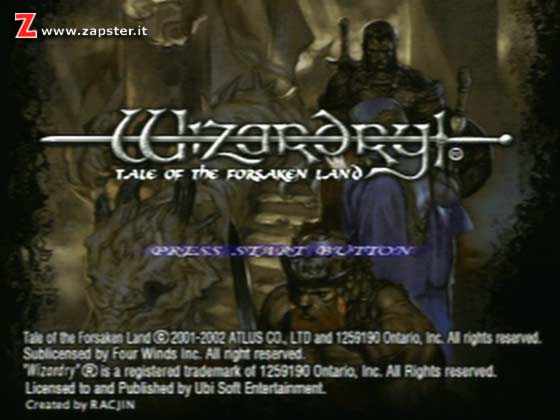
Wizardry: Tale of the Forsaken Land doesn’t do much different from most common first person dungeon crawlers, but it does enough to make it work on a console and make it fun. With the addition of Trust, the overall simplicity, and still being able to stick to traditional roots, it’s a game I highly recommend for any RPGer, old and new.
Verdict: 500 Exploding Gophers out of 2783 Bill Murrays



 October 11th, 2011
October 11th, 2011  gunsage
gunsage  Posted in
Posted in  Tags:
Tags: 

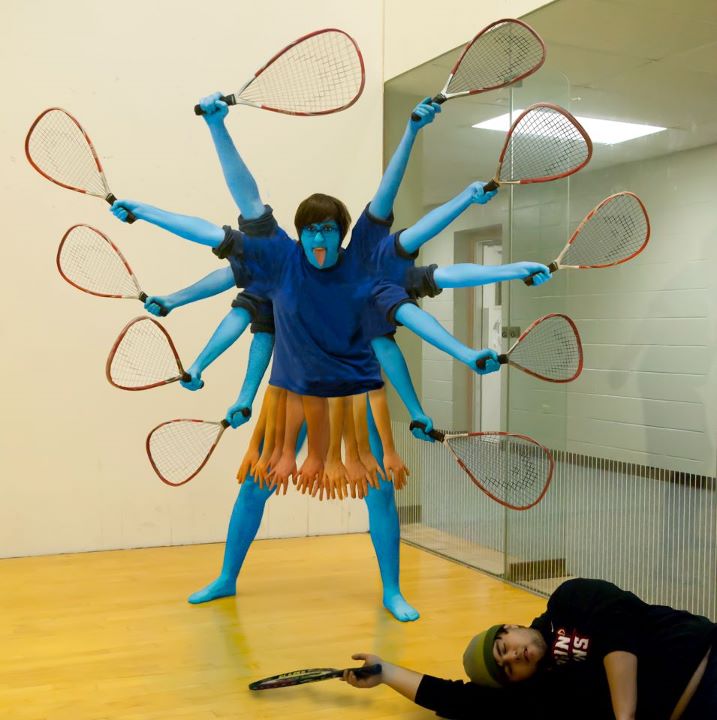


"Verdict: 500 Exploding Gophers out of 2783 Bill Murrays". Well, since you put it THAT way it all makes sense to me now. =)
Groundhog Day is an awesome movie, actually.